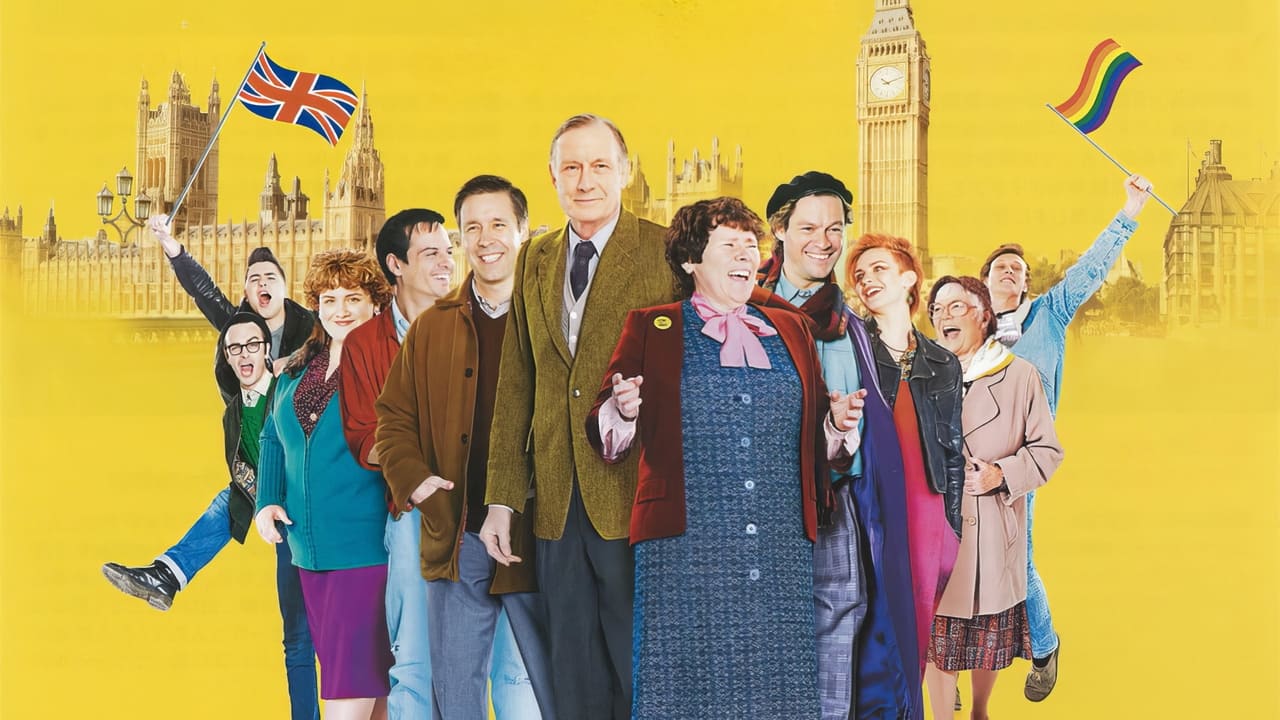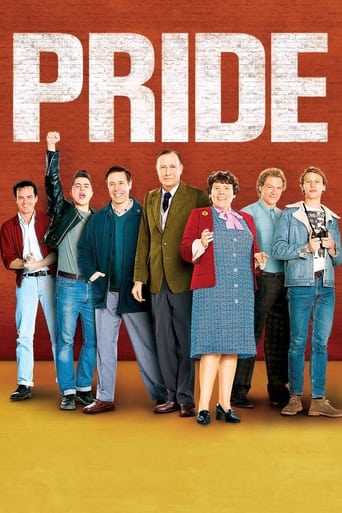barberic-695-574135
Just brilliant, a must watch movie. A true story that waited a long time to be told. Moving, funny, telling and entertaining. Cannot really fault this movie in any way. Good story, well acted and brilliant production. A movie that will make you laugh and make you cry. Will we be watching it again? Most definitely.
Gavin Purtell
'Pride' is a simple British film that manages to be about lots of things all at once, all while being charming and quaint, as only the Poms can do! It's set in London (and Wales) in 1984 and follows a small group of gay & lesbian activists who decide to do stand up to the Thatcher government - not for gay rights, but for the rights of the striking miners! It's all handled quite well and doesn't become a full on drama, or a full on comedy - or even a full on "political" or "gay" movie.Sure, there's definitely lots of political messages being explored - and you would like to think the world, in general, is a more tolerant place 30 years later - but the film's really about this group of six friends banding together and supporting another put-upon group, a small mining community in Wales. This is where a lot of the humour comes from - the old Welsh ladies having fun with "their gays" and "their lesbians"!The cast is superb - even though Nighy is probably under-utilised - with Mark (Schnetzer) & Joe (McKay) particularly captivating. The soundtrack/score is also great, although there's obviously some disco! Well-paced and with a great ending, this is a very enjoyable film.
James
I watched the Matthew Warchus-Stephen Beresford offering "Pride" just days after media heralded the first week in centuries in which the UK engaged in no large-scale power generation from coal. I use the word "heralded", since - while there were many references to that being "historic", it was hard to see much regret. Today, coal is viewed as a dirty source of CO2. The fact that we might someday need some for strategic purposes - just in case - seems wrongly skimmed over, but should we really mourn the passing of coal as main everyday fuel? This is a first key perspective against which "Pride" can be set, while the second concerns the relatively recent death of Lady Thatcher - a person who receives zero sympathy in this film, as well she might not given the authentic recreation of the circumstances of 1984. However, this is 2014 work that refuses to acknowledge what Maggie knew - that each taxpayer had by 1984 been subsidising the coal industry for decades to the tune of thousands. This is likewise a film ready to simplify Arthur Scargill down into a hero-leader of working miners, and to present police officers as little more than suppressors of rights ready to deploy physical and verbal abuse against strikers. Finally, it is a film largely unprepared to acknowledge that miners lived short, dirty, diseased and unpleasant lives that few would envy, and that many did their level best to escape from. The closest we get to this last recognition is a brief line uttered by Bill Nighy's character "Cliff", who makes it clear that members of his close family have been killed by their occupation.In short, and with the best will in the world, "Pride" is irrevocably pro-miner, decades after the events, showing how opinions on the miners' strike will remain divided - perhaps forever, with black v white, and little nuancing or attempt to present both sides of the argument.Interestingly, your reviewer is not quite like that...While this film cannot persuade me to renounce my admiration for "Maggie" overall, I do find sympathy for the miners' cause evoked in me by "Pride" (just as I find it evoked by "Brassed Off" - the similarly-themed Mark Herman film made in 1996, hence far closer to the portrayed events). I AM NOT made of stone, even if the makers of "Pride" seem to be.Of course, "Pride" goes beyond the strike per se to report the remarkable alliance struck up between young male and female homosexuals and Welsh miners at a time when anti-Thatcher sympathies were NOT enough to bridge gaps of prejudice, even when the L&G community did all they could to raise funds to help the miners and their families. The fact that these were often English city-dwellers from the "soft South" made the divide even more visible!This is obviously then an amazing story worth telling, and it is here told with warmth, insight and humanity, and indeed - in this dimension at least - with the necessary nuancing. AIDS was just getting going then, and potential sufferers and society were both scared, for the same and different reasons. This ensured that anti-gay sentiment gained reinforcement just at a time when sexual-minority rights would otherwise have been making further progress. Even the 21 age of consent for male homosexuals was still in place. It was a quite different world, and one that gains authentic presentation.The aforementioned Bill Nighy plays far from his usual part, and is perhaps the most compelling character - a quiet, poetic soul thrilled by mining history and culture, though not quite blind to its costs, a repressed homosexual himself and a gentle man resorting to the strongest possible language as he spews out his loathing of "Thatcher". His fellows in the mining community include the reasonable, bridge-building "Dai", whose portrayal by Paddy Considine is just right. And, needless to say, Dai's mix of crusading and pragmatism at first gets far more support from the true unsung heroes of every such industrial village - the wives and mothers. Here we get quite superb performances from Imelda Staunton as the gung-ho Hefina, as well as the quieter kindness personified of Gwen, played by an excellent Menna Trussler. On the L&G side there is an absolute plethora of great acting to savour, be it from Faye Marsay as the lovely (in every sense) "Steph" or Dominic West as older gay actor Jonathan Blake - in real life still alive in 2017, despite being among the first people in Britain to be diagnosed HIV+. Then of course there is our hero "Joe", played by George Mackay; Gethin (Andrew Scott) and real-life early AIDS victim Mark Ashton - also a communist (though the film chooses not to go there), who is just superbly played by Ben Schnetzer. On this side of the film, this is an ensemble chosen with care to offer a non-stereotypical presentation of the whole spectrum of types and personalities that the lesbian and gay community (just of course like ANY OTHER COMMUNITY) can muster.Ultimately, "Pride" remained an at-times uncomfortable watch for me, but solely because I believe the cynically manipulative and self-adoring Scargill had an agenda beyond UK pits, while Maggie had a duty (was repeatedly elected) to see the big economic (and even environmental) picture. That is also a story that will need telling someday. In the meantime, here is a film that I still appreciated greatly, portraying an incongruous and priceless situation from history enjoyably, thoughtfully and deftly, through truly classy performances.But concession-making is a two-way process. If I can swallow my "pride", sacrifice political beliefs to see the merit in (and even feel sympathy for) arguments presented by the other side, well perhaps so also can they, one day...

